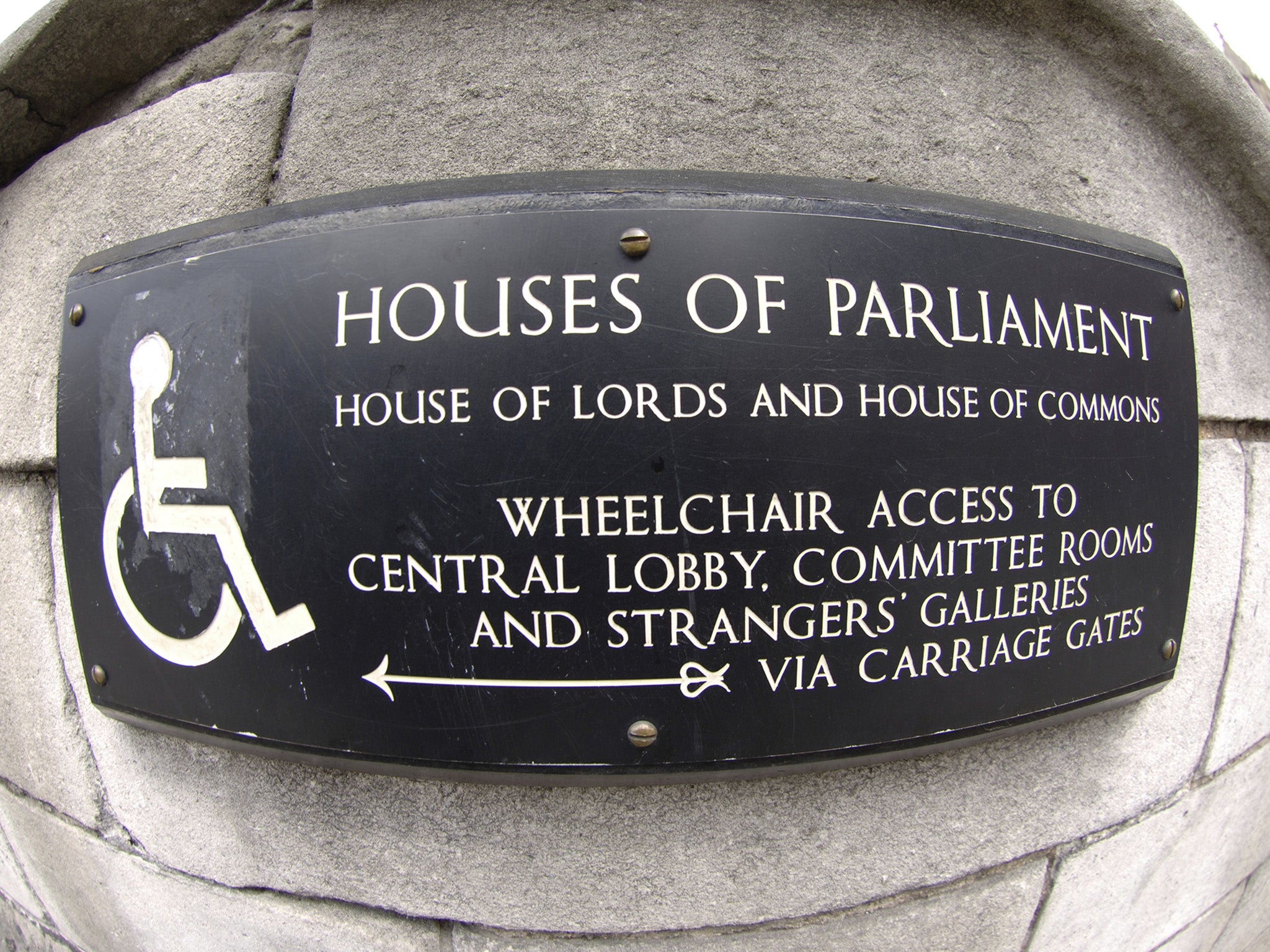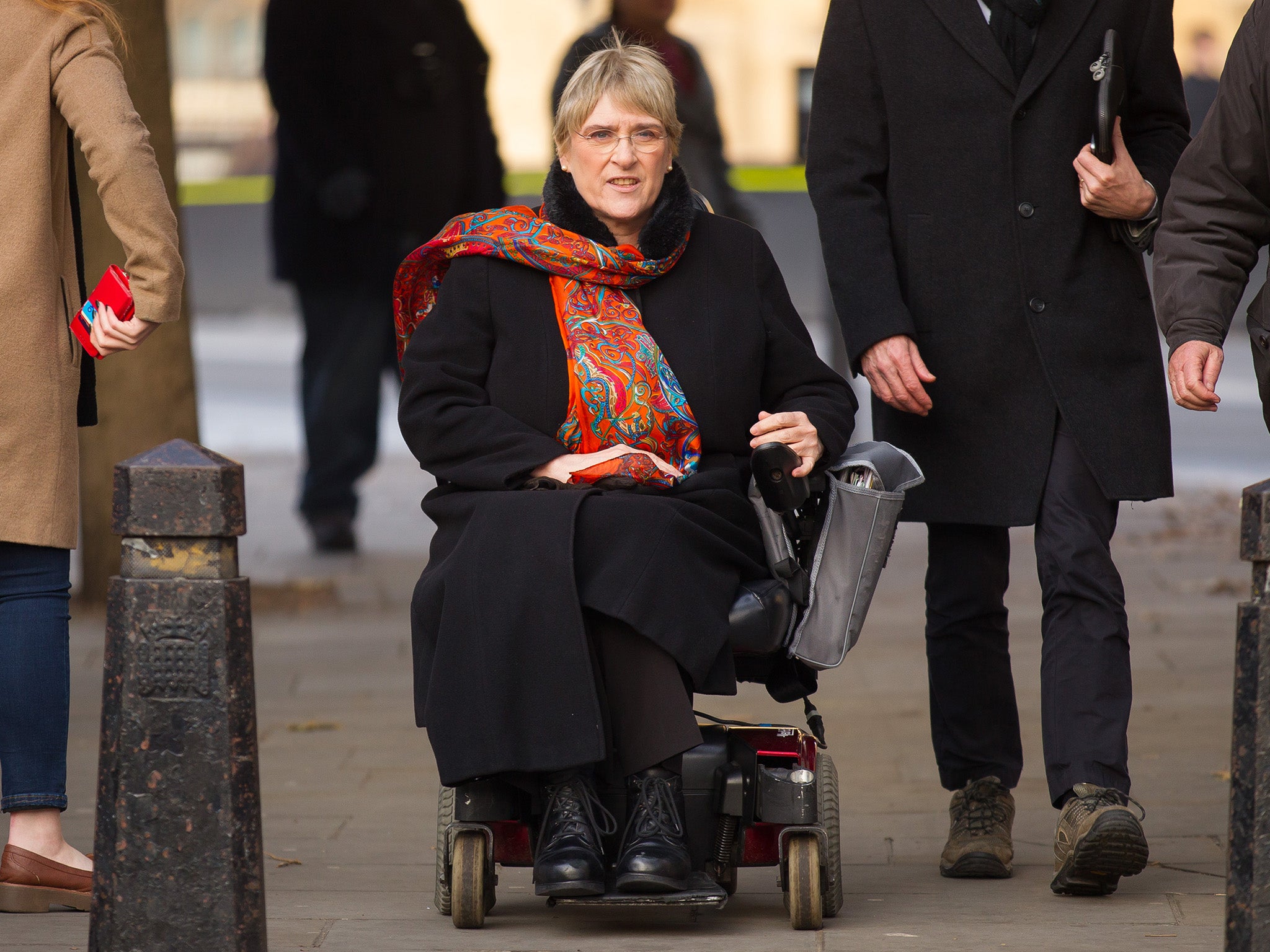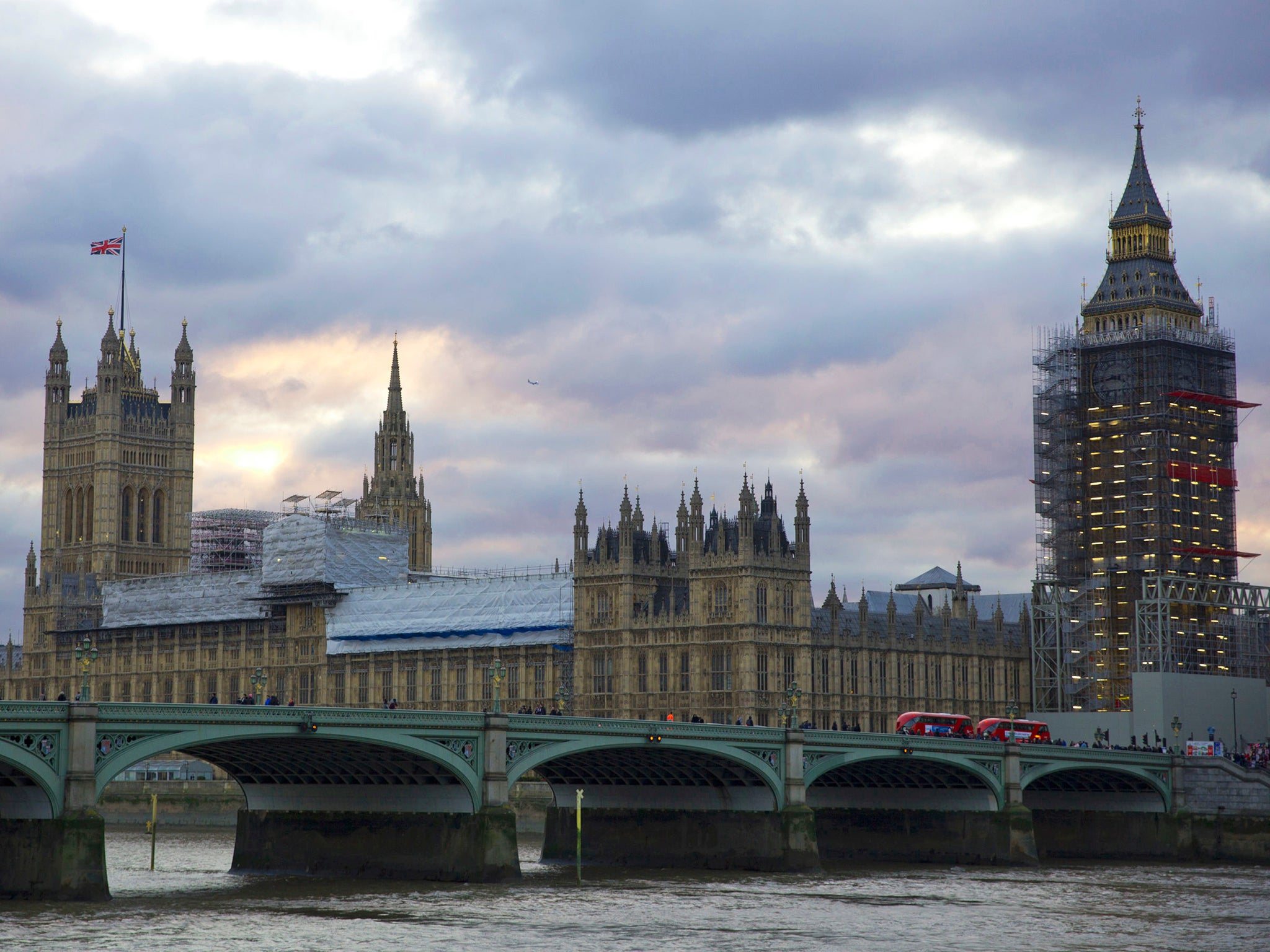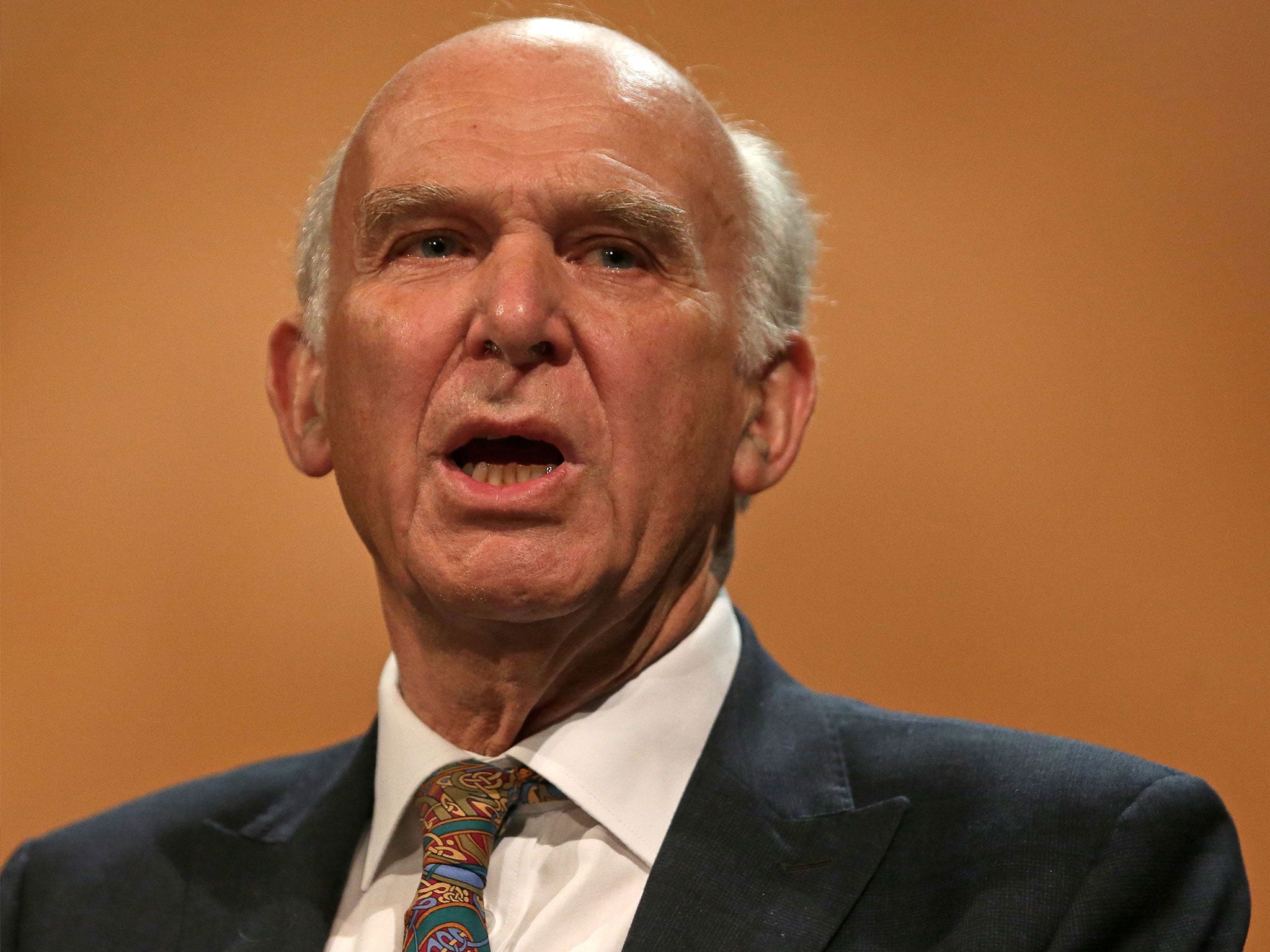Vince Cable is ramping up his campaign to make Westminster work for disabled people
With the Houses of Parliament set for major renovation, Sir Vince Cable is pushing to use the opportunity to hugely increase wheelchair access, part of a wider campaign to make the Lib Dems the party of disability rights. James Moore met up with him

It ought to be setting an example to the country, but as so often, the House of Commons is a font of backward thinking when it comes to disability, and diversity more generally.
Sir Vince Cable says he that he wants to change that, and in the process provide the Liberal Democrats with a catalyst for revival beyond their fierce opposition to Brexit.
The debate over restoration and renewal of the Houses of Parliament provides a venue for his campaigning. He wants to secure reserved seating for wheelchair-using parliamentarians so they can sit with their parties rather than being relegated to the bar of the House.
“It should’t be a major problem to clear spaces on either side so someone in a wheelchair can park themselves, in a perfectly sensible, practical way,” he tells me when we meet in Portcullis House. It is the most modern, and accessible, part of the UK legislature, but would still be found wanting were it to be built under today’s regulations.
With his party’s president Sal Brinton a wheelchair-using peer, Cable is keenly aware of the issues that working in the place presents to people with disabilities. “It’s something that could and should be done now,” he continues on the subject of seating. “But in any event this place is going to have to be substantially rebuilt. It’s falling down. I didn’t realise there are people going around the building for 24 hours to check if fires break out.

“We should be ahead of the curve rather than behind it on disability access. The restoration and renewal of the Palace of Westminster will be debated in the Commons and the Lords next month. “We’e calling for both to have at least five reserved spaces for wheelchairs. These could be tip-up benches, allowing disabled parliamentarians to sit with their parties.”
The problems with the Palace of Westminster, however, go beyond just the chambers, as becomes clear to me when I take a tour afterwards.
If you use a wheeled conveyance you frequently end up in the bowels of the building, wending your way through grimy corridors. At one point I have the huge scrapes inflicted on a doorframe pointed out to me. They were made by some of the wider wheelchairs and mobility scooters. I can only imagine the damage done to them in return.
Away from the public areas, with their gaudy decoration; the paintings, the stained glass, the statues, the shabbiness of the place becomes very obvious. Some might see that as a metaphor for the country Britain has become.
When I suggest to Cable that the House is one of the nation’s more hostile workplaces towards diversity generally – the recent revelations about the conduct of MPs towards women would bear that out – he maintains that it is still better than it once was. “But it is very unrepresentative of the British public”.
To address this, he would like to see parties allowed to create all black and minority ethnic shortlists alongside the all women and all disabled shortlists they are already allowed under equalities legislation.
This, he says, could be accomplished relatively easily, via secondary legislation. Letters have been sent, and meetings are planned to that end. Occasionally Cable’s advanced age (he’s 74) gets mentioned in the media. It doesn’t seem to have had any impact on his energy levels.
“Certainly when I came here there were very few women, and women attracted verbal insults and aggression a lot of the time,” he says, warming to his theme. “That’s changed. There were hardly any black or Asian MPs. There is now a respectable number but it is still short when it comes to the population at large.
“Going back to your point on the place being unfriendly, it’s only in the last few years there’s been a creche and the atmosphere is still quite hostile. You very occasionally see an MP with a baby in the division lobby. Most of us think that’s great, but you do see House of Commons officials sniffing with distaste.”
He says the Palace’s handling of disability, in particular sticks out like a sore thumb, referencing the experience of Brinton. “She is quite rude and aggressive – and rightly so – about the lack of consideration of this place. You have to be.”
It is to her that he credits the proposal to create wheelchair seats within the chamber “so people who are disabled aren’t sort of penned out of Parliament”.
“The other thing Sal and others have pointed out is that the disabled loos aren’t adequate. They’re there but they’re often not big enough to turn around in. The doors are often not fitted correctly. So there’s a whole lot of rethinking needs to be done about the architecture of the place.
“It’s being fed in to the process, but it’s not being taken seriously. There are House committees and where we have representatives we ask for progress.”
It’s encouraging to hear his passion for the issue given how often it gets papered over, and it’s a stance that stands in stark contrast to that of the Government. It likes to talk about how it wants to improve life for disabled people on the one hand, while punching them in the face with the other.
The elephant in the room is that Cable was once a part of the coalition with the Conservative Party that introduced reforms that have inflicted deep wounds upon too many disabled people.
The introduction of the Personal Independence Payment as a replacement for Disability Living Allowance by Iain Duncan Smith while at the Department for Work and Pensions is the obvious one.

To be fair to Cable, he never looked as comfortable as some of his colleagues did over being a part of the coalition, and it wasn’t anywhere near his remit as Business Secretary.
Now he argues that the main problem with the PIP is not so much the benefit itself but with its testing regime, about which he is scathing: “The issue has been the implementation – the harshness and insensitivity of the system. We want to build a campaign around that. There is a lot of debate around the universal credit, and quite rightly so because it is awful, but there has been much less attention on the PIP payments regime.”
His method of solving the problems it has created is to strip the contractors hired by the Government of the responsibility for testing and instead to take it back in house.
“We’d have it done by Government, on a consistent standard with proper testing and professionals. At the moment there is a rejection rate of 75 per cent, and then you go to appeal where about two thirds are upheld. That shows either grotesque incompetence or that there’s a systematic process of setting quotas.
“I’ve always suspected that there was. There probably isn’t anything on paper, because that would probably be illegal, but it has become fairly clear that some of the testers felt themselves under pressure to turn people down on fairly frivolous grounds and they somehow had to reject as many people as they could.
“Whether there is a specific quota, or just a mindset, I don’t know but it is bad the way the system operates. Government bureaucracy doesn’t necessarily work better than private enterprise, but it is more accountable. In an area where you’re talking about payments which can be the difference between people being able to live a civilised life and not… you can’t subcontract that sort of stuff.”
He talks of trying to “grab the agenda” on the issue and “change consciousness”.
But he admits that achieving substantive change, whether in policies such as the PIP, or with the Commons’ unfriendliness towards diversity, and in particular disability, will require “a hard slog”.
“It’s not outright resistance that you encounter. It’s passive resistance. I see it in my casebook when it comes to issues like housing. You have to get a report by an occupational therapist done, and that takes forever. Then the council or the housing association say they have to wait until a premises becomes vacant and so on. There is constant friction and resistance to change.”
Of course, a little more parliamentary clout would do wonders towards overcoming that, but the party is treading water in the polls, caught in a squeeze between the two main parties.
The Liberal Democrats experienced a fierce electoral backlash as a result of their joining forces with the Tories, one that was partly driven by policies like the PIP, not to mention austerity and in particular the party’s reneging on a promise not to increase student fees made under Nick Clegg.
Cable says he detects signs that it is coming to an end.
“We’ve had two disappointing elections. The first was reasonably easy to understand because we’d been in coalition and there was quite a lot of baggage. The second was more difficult. In terms of vote share we’re roughly at the level we’ve been at for five or six years now.
“I’m optimistic we can turn that around for several reasons. One is we’ve got a larger more active membership than we’ve ever had. It’s at record levels. We have more members than the Tories, as it happens. There’s quite a lot of energy at local level which people don’t always see.
“We’re winning local by-elections, doing better than the other major two parties. I get a good reaction when I go and speak to students at universities and I get a good response in areas that don’t fit with the stereotype of being Liberal Democrat strongholds. I think on the big issues of the day we are a right.”
Which brings us to Brexit, of which Cable says: “It’s car crash in slow motion. We are only at the beginning of the skid.”
If party has work to do to make itself stand out as a champion of diversity, its distinctiveness on this issue is clear.
The problem is that squeeze. The polarisation of British politics meant that the Lib Dems failed to benefit from the revenge of Remain in the June general election that stripped Theresa May of her majority. In fact, its share of the vote fell even as it picked up four seats, bringing the tally to a still disappointing 12.
Cable maintains that this will change “when the public’s mind has settled, if as I suspect we either get a disastrous deal or a no-deal”.

“People will say well who was right about this, who can we trust on this issue? I think as a party what’s happened in the past, where we’ve had something distinctive, where we’re leading public option, and the Iraq War was the classic one, we can then get through.
“I think there are various other areas where we’ve tried to making the running too, on housing, on economic policy, where we’re not doctrinaire free market, we’re not doctrinaire hard left socialist. And we have a record of competence in Government which helps.”
Cable also maintains that that polarisation of left and right will ultimately help his cause: “The last occasion when British politics cracked was in the early 1980s, when you had Mrs Thatcher pushing off in one direction, and the Labour Party pushing in the other with Michael Foot and all that. It created this space, and for at least for some years you had the hope of something fundamentally different emerging.
“I think it could well happen again. We are getting organised to take advantage. I stand ready to play a part. What is happening in the Labour Party isn’t much talked about because of what’s happening in the Government. But what we’ve seen is that in Birmingham, in Manchester, in various London boroughs, they are quietly getting rid of the moderates.
“Those people are still rather shellshocked. They don’t know what to do. If it goes much further they will be rethinking their political alignment.”
This expectation led Cable to state he could become prime minister in an earlier interview. It’s a real stretch to see that happening, particularly given the evidence of the polls which, despite his professed optimism, still don’t make for happy reading.
Still, in the current climate, there is a decent chance that Cable could once again find himself forsaking the role of campaigner in favour of becoming a player. I’d imagine that he and his party would take that. If he means what he says on the subject of disability, and keeps it at the top of his agenda when that happens, others too might cheer.
Join our commenting forum
Join thought-provoking conversations, follow other Independent readers and see their replies
Comments
Bookmark popover
Removed from bookmarks